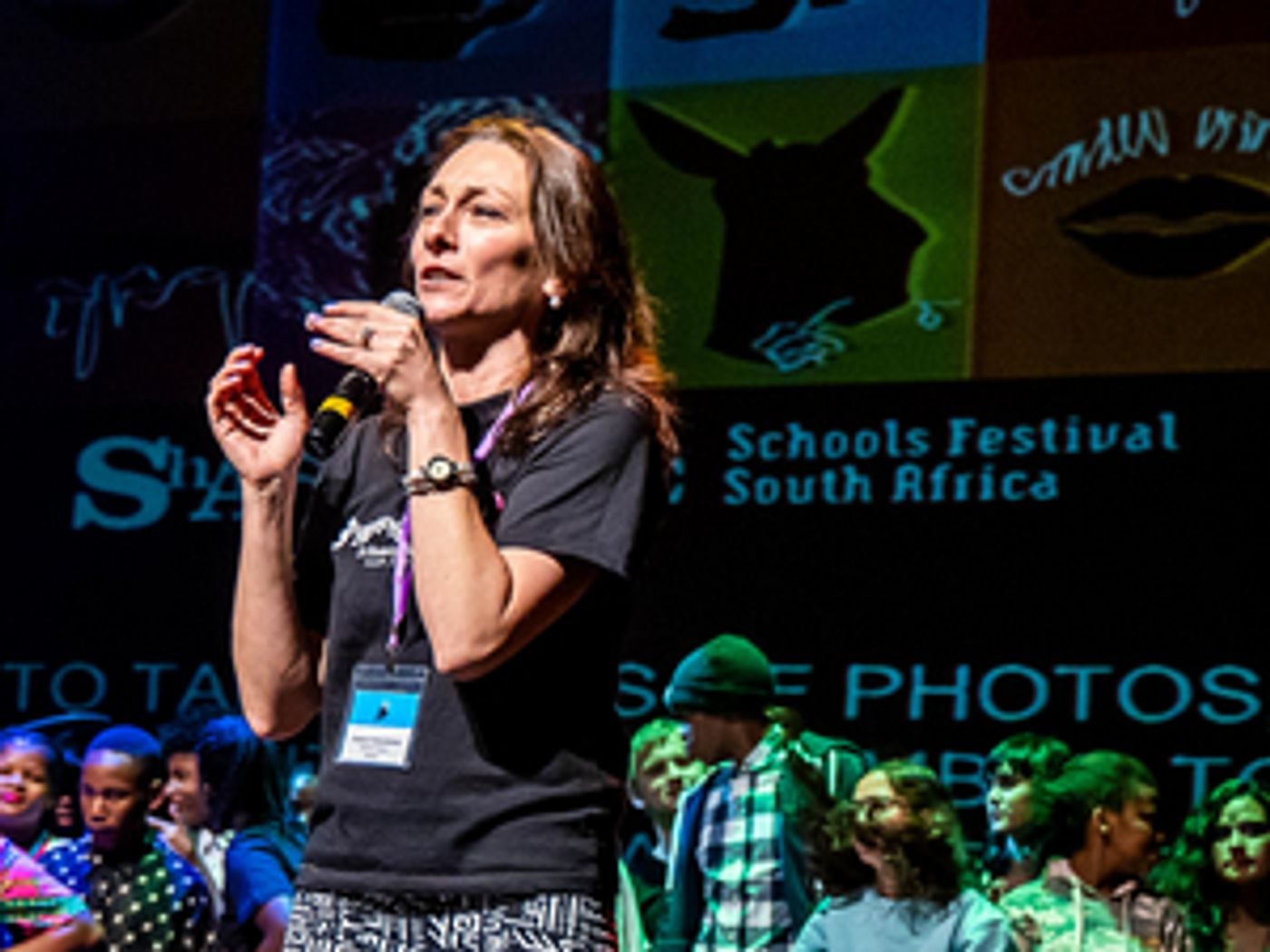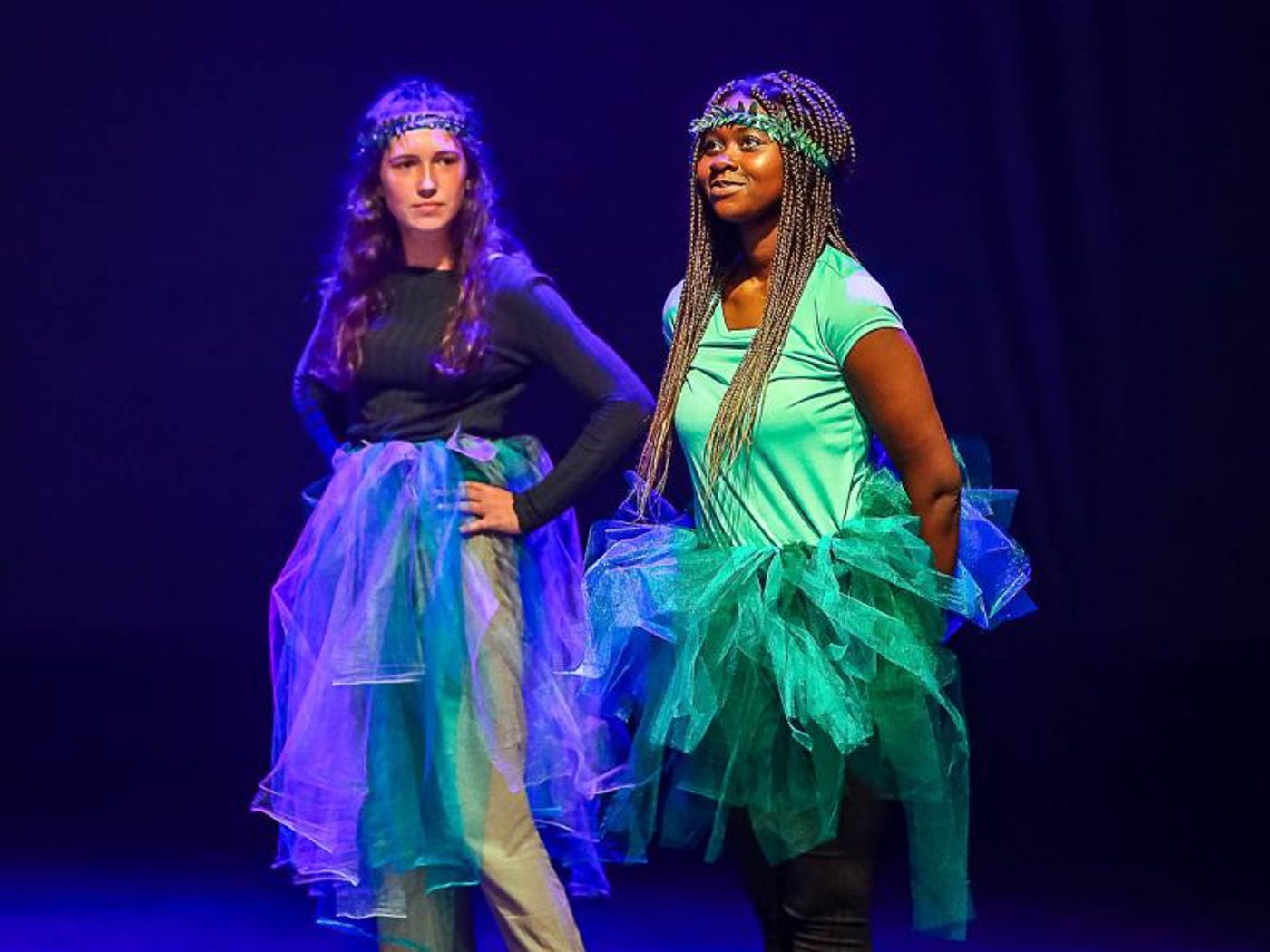Interview: Kseniya Filinova-Bruton of THE SHAKESPEARE SCHOOLS FESTIVAL SOUTH AFRICA at The Fugard Theatre

This year is the 10th anniversary of the SHAKESPEARE SCHOOLS FESTIVAL SOUTH AFRICA (SSF SA) and the first round is happening at The Fugard Theatre 3-14 March. We chatted to the found of the festival, Kseniya Filinova-Bruton, about all that she and her team have managed to achieve in the last 10 years.
BWW: Let's start off with - what prompted the creation of this festival?
Kseniya: My journey with Shakespeare started back in my childhood. Growing up in a family of theatre makers, I was exposed to my parents acting in some of the Shakespeare plays in one of the Youth theatres in St. Petersburg, Russia. At the age of three, I made my first debut in a cameo role of little Viola from Twelfth Night. My love and appreciation for theatre and education got me working on the idea of creating this festival.
I moved to South Africa in 1995 and have been living in Cape Town since 2004. Here, I was fortunate to find myself a teaching job at Wynberg Boys' High School, where I taught the Creative Arts subject and was in charge of their Drama Society. In 2009, I came across the information about the Shakespeare Schools Festival in the UK and straight away thought their festival concept was something that I could adapt in South Africa. In 2010, SSF UK endorsed me to develop the festival in SA, and Wynberg Boys' HS Drama Society became the very first school to present an abridged 30-minute production. Seeing the amazing impact on the personal development of my learners at WBHS and their growing interest in Shakespeare's works, their general attitude to learning and improved academic achievements was also a boost of confidence for me to further explore the opportunities of making this festival platform available to other schools and bringing their productions to be showcased on the professional theatre stages around the country.
BWW: What would you say have been the biggest challenges in getting the festival up and running, and growing it so significantly?
Kseniya: In the beginning, one of the challenges was the fact that I was creating a festival for the very first time, and I didn't have the right network of people, no data of measurable outcomes available to attract stakeholders and supporters. Networking is crucial in my field and it takes time to build up the database and meet the right people in the industry.
My other biggest challenge at the start of this project was funding. The festival was officially launched in 2011, but I continued to teach at WBHS until 2015, doing lots of extra work outside the school to get the festival up and running. Registering a Non-Profit Organisation was a crucial step in my fundraising initiatives, which eventually led to a point for me to resign from teaching and give the festival full-time attention to ensure its development and growth. Funding, however, remains to be our biggest challenge every year. I rely on my amazing team, who do lots of extra work for very little financial rewards.
BWW: Is this the first year that the SSF SA has been associated with the Fugard? How did this come about?
Kseniya: Yes, it is correct; we are bringing the festival to Fugard theatre for the very first time this year. There are a couple of factors that led to this new association. Firstly, the Fugard theatre is also celebrating its 10th anniversary this year and will be staging a full professional production of Hamlet, which will be their very first Shakespeare production. The Fugard theatre felt this is a great opportunity to open their doors to SSF SA and give our schools a chance to perform on their stage.
BWW: What are the general ages of the students getting involved, and how do schools go about getting on board to perform or participate in some way?
Kseniya: SSF SA is open to any interested school; ages of our participants vary from 6-18 years old. Schools who wish to take part in the festival can simply get in touch with us on email via our website or Facebook page to get more information. We often offer an introduction visit and meet with the teacher to explain the festival structure and process of preparation that will lead the school to perform at their allocated theatre venue. This year, we added another aspect of schools' involvement with the project by offering training in PR and Media for the participating schools, which identifies interested learners who wish to step into the PR roles and promote their school's participation within their school and communities at large.
BWW: Tell us a bit more about what it's like for the schools participating in performances. Cutting a full-length Shakespearean play down to 30 minutes is a mammoth task, and it must be quite something for a drama teacher to take on with their students.
Kseniya: SSF SA offers all the necessary resources for the scripts; we have 27 plays available in the 30-minute versions. Our script resource packs also include character notes, 10-point summaries of the plays and guidelines. Additionally, some of our scripts are developed specifically for Primary school level. We also have wonderful resources - a few plays have been translated into IsiXhosa, IsiZulu and Afrikaans, which can be used either for the performance at the SSF SA events or supporting academic materials for schools that study Shakespeare plays as part of the English Curriculum.
Teachers are welcome to further reduce our 30-minute scripts or adapt the language to make it more suitable and relevant to their learners.

BWW: It must be so rewarding getting to see young minds interacting with the Bard each year. What are some of your most memorable highlights?
Kseniya: I cannot express the feeling of amazement and joy when I have the greatest honour of seeing the productions come alive on the night of the festival. Every year I see the exceptional level of performance from learners, a truly magical experience to witness the way that schools interpret Shakespeare's plays. You will never see Macbeth or A Midsummer Night's Dream done the same way. The creativity amongst the teachers and student directors is remarkable.
It is hard to pinpoint one particular moment, every festival is so special, from moments of hosting the workshops to the actual performances at the theatre.
However, I would mention one of the highlights for me is working with schools for differently-abled learners. In Cape Town, three schools are superb in quality of performance by the learners, teachers come up with incredible versions of the plays and the audience are always left in awe of their talents. De La Bat School for the Deaf left me sobbing while watching their version of Romeo and Juliet in SASL (South African Sign Language) back in 2018. Pioneer School for Visually Impaired brought an exceptional production of Hamlet in 2019 set in a modern world of gangster paradise, where learners perform completely unaccompanied on stage and without use of canes. Vista Nova HS has a magnificent and supportive cast of learners with various learning difficulties and physical disabilities, with some actors in wheelchairs most gracefully using the stage space.
For me seeing the magic of transformation amongst the learners on the night of the festival, the way they grow in self-confidence and sense of self-worth is one of the main reasons I do my work.
BWW: And finally, where do you see the festival in the future?
Kseniya: In 2016, we reached out to my colleagues and family in Russia with an idea of introducing the concept of SSF and successfully ran two pilot festivals in 2017 and 2018 in Moscow and St. Petersbrug. Our sister festival in Malawi hosted its third SSF in December 2019. One of my future goals for the festival is to continue the international reach and raise funds for cultural exchanges between South Africa and other SSF hosting countries.
Of course, the further growth of SSF in South Africa is also one of our goals, to include more provinces to take part, over and above current reach in the Western Cape, Gauteng, Kwazulu Natal and Eastern Cape.
BWW: On a final note, I'd just like to say thank you for everything that you have done over the last ten years with this festival. It is so incredibly important to keep the arts alive for the youth of our country and your efforts are just amazing. We wish you all the best with your incredible 10th anniversary and into the future!
Photo credit: supplied
The 10th anniversary of the SHAKESPEARE SCHOOLS FESTIVAL SOUTH AFRICA will be taking place at The Fugard Theatre 3-14 March on Tuesdays to Sundays at 7pm. Tickets are R95 and can be booked through The Fugard Theatre box office on 021 461 4554 or through The Fugard Theatre's website at www.thefugard.com.
Videos

